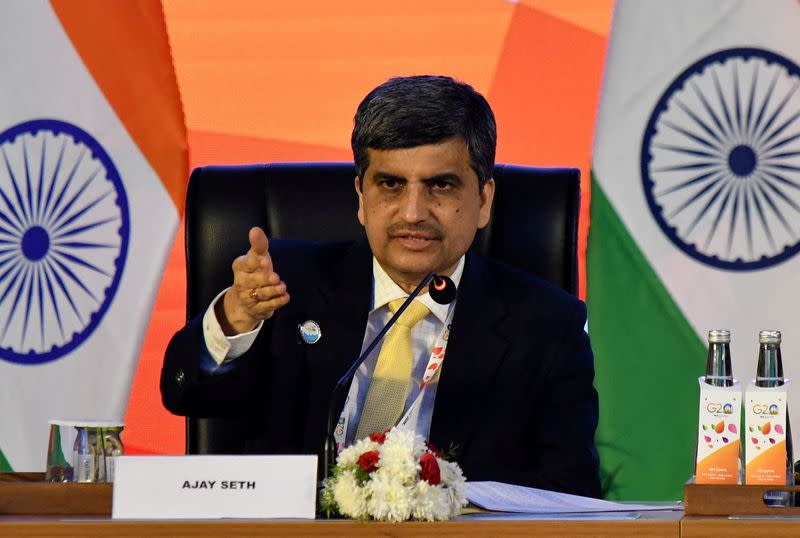India says banking system sheltered from wider sector turmoil

By Shivangi Acharya
NEW DELHI (Reuters) -India's Financial Stability and Development Council (FSDC) considers the country’s banking system to be protected from any spillover from issues in the sector globally, the country's economic affairs secretary said on Monday.
Ajay Seth was speaking with reporters after the meeting of FSDC, which is chaired by the finance minister and brings together the leading regulators, including the country’s central bank.
"We see that the global financial situation is daunting but, at the same time, Indian economy and financial sector is well protected and well regulated. But of course we have to be cautious and be on our toes," Seth said.
Asked whether the council, which was the first FSDC meeting since the 2023/24 Federal Budget was announced on Feb. 1, discussed India’s exposure to the Western financial system, he said it was not specifically discussed. However, whether spillover can occur and the channels of potential risks were debated.
The council also backed a drive by regulators to help unclaimed deposits in banks and other financial institutions get to nominees, or legal heirs, Seth said.
The proposal aims to focus on cases where details of a nominee are available, and a process will also be established for cases where such details are not available, Seth added.
India's public sector banks typically transfer deposits in accounts that have been dormant for 10 years or more to the country’s central bank.
(Reporting by Shivangi Acharya and Aftab Ahmed, writing by Sakshi Dayal; Editing by Toby Chopra, Barbara Lewis and Sharon Singleton)

 Yahoo Finance
Yahoo Finance 